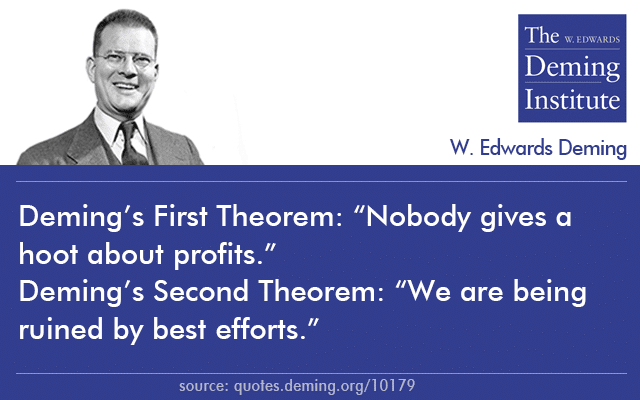Guest post by John Hunter, author of the Curious Cat Management Improvement Blog (since 2004).
It is enjoyable to listen to the stories Russell Ackoff tells. And the lessons those stories include are powerful and useful. I also gain new insight when I re-watch them years later.
The video included here is the fourth video from a day with Russell Ackoff presentation (from 2004). See our posts on the previous videos: Ackoff on Leadership and Transformation, The Existing Management Conditions Limit How Effective New Strategies Will Be and Russell Ackoff Answering Questions.

What kind of a problem was it? A production scheduling problem? A product line design problem? A salesman compensation problem? It’s none of them. But if you understand the way the parts interact, you know which way to go into the system to get the effect that you want in the easiest and most economically effective way.
Creative thinking is very important to problem solving and continual improvement. And an appreciation for systems is important to incorporate into that creativity.
In my experience, it is possible to learn important lessons from any of Dr. Ackoff’s presentations (and it is enjoyable to do so). But that learning only scratches the surface of what can be learned. As you increase your understanding of Ackoff’s ideas, the lessons you learn from each video are greater. His management philosophy (as is Dr. Deming’s) is a system, and with your knowledge of that system, you gain a deeper understanding when watching the same lecture.
95% of corporate decisions were justified by 1 objective that was not on the list: to maximize the standard of living and quality of life of the people that made the decision.
Myths that corporations are driven by “maximizing shareholder value” or “being a good corporate citizen”… do not explain decision making within corporations. Corporations are not led by those seeking to maximize shareholder value.

Related: The Existing Management Conditions Limit How Effective New Strategies Will Be


